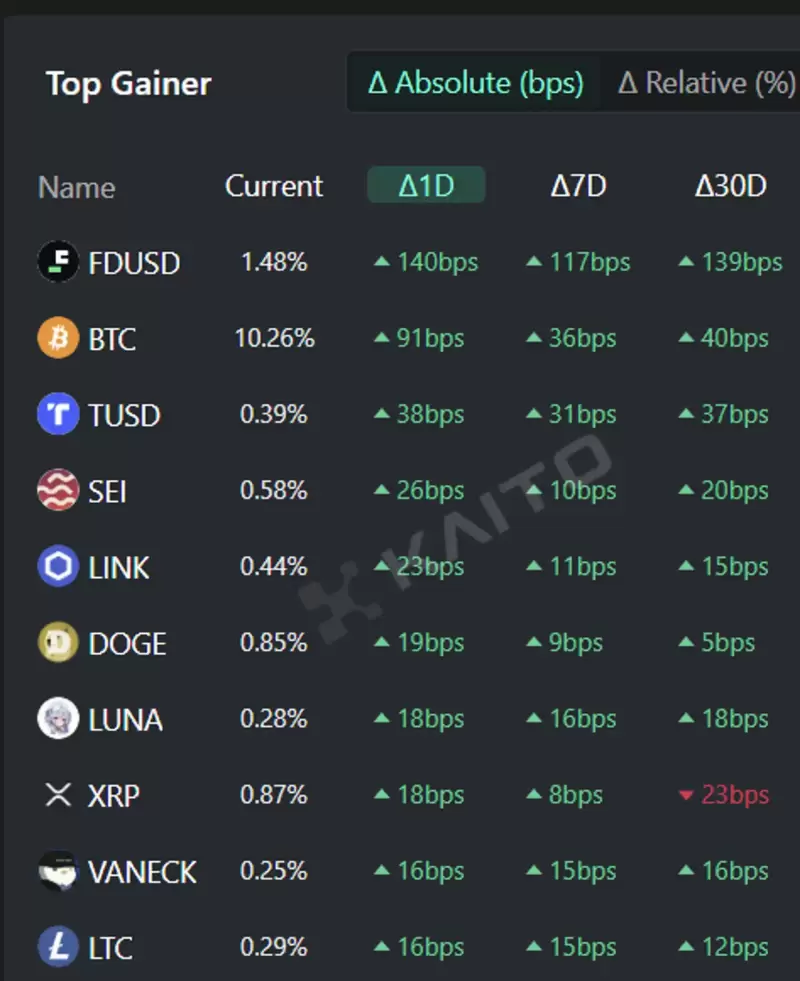 |
|
 |
|
 |
|
 |
|
 |
|
 |
|
 |
|
 |
|
 |
|
 |
|
 |
|
 |
|
 |
|
 |
|
 |
|
Cryptocurrency News Articles
Unveiling the EU's DeFi Regulatory Roadmap: A Comprehensive Guide
Apr 05, 2024 at 02:06 am
The European Commission is assessing the DeFi market to determine the feasibility of regulations for the sector, with a report due by December 2024. The framework for digital asset regulation in the region, known as MiCA, requires this evaluation. The report will focus on decentralized systems and, in particular, the regulation of crypto-asset lending and borrowing. Concerns have been raised about the legal viability of some crypto projects, with decentralized exchanges potentially facing licensing requirements.

Unveiling the Regulatory Landscape for DeFi in Europe: A Comprehensive Analysis
As the burgeoning realm of decentralized finance (DeFi) continues to gain traction, regulatory authorities across the globe are grappling with the task of establishing a framework that fosters innovation while safeguarding consumer interests. The European Union, a prominent player in the global financial landscape, is poised to play a pivotal role in shaping the regulatory landscape for DeFi within its borders.
The MiCA Framework: A Regulatory Catalyst
The Markets in Crypto-Assets (MiCA) regulation, a comprehensive framework governing digital assets within the European Union, has set the stage for a thorough evaluation of the DeFi market. The European Commission, the executive arm of the EU, is mandated to prepare a report by December 30, 2024, assessing the decentralized finance landscape and exploring the feasibility of tailored regulations for the sector.
Exploring the Regulatory Frontiers of DeFi
This report will delve into the regulatory challenges posed by decentralized systems, particularly those lacking clear issuers or service providers. Central to this assessment will be the examination of regulations governing crypto-asset lending and borrowing, a core activity within the DeFi ecosystem. DeFi, in contrast to traditional finance systems, leverages blockchain technology to facilitate peer-to-peer finance, bypassing the need for intermediaries like banks and financial service providers.
Industry Concerns and the Scope of DeFi Regulation
The prospect of new regulations has ignited concerns among industry stakeholders regarding the legal viability of certain crypto projects. Rune Christensen, co-founder of MakerDAO, has expressed apprehension that the proposed rules could potentially subject DeFi interfaces, such as decentralized exchanges, to licensing requirements. Such a measure, he argues, would effectively render the current model of DeFi frontends on internet domains obsolete, leaving only fully decentralized, downloaded frontends or fully compliant online frontends as viable options.
Similarly, Nathan Catania, partner at XReg Consulting, believes that any DeFi regulation would encompass non-fully decentralized applications, including DeFi frontends. Catania emphasizes the lack of a clear definition of "decentralization" within the MiCA regulation, highlighting that the scope of DeFi rules will hinge on the criteria used to determine this concept.
Defining Decentralization: A Key Challenge
Catania underscores the potential for even protocols that fall short of full decentralization to be deemed as performing Crypto-Asset Service Provider (CASP) services, such as exchanging crypto-assets. For front-end applications, services like receiving and transmitting orders on behalf of third parties could also fall under regulatory scrutiny. The strictness of enforcement by regulators will ultimately determine the impact of these regulations.
In addition to the MiCA framework, the Financial Action Task Force (FATF) is another influential body shaping the regulatory landscape for DeFi. FATF proposes that individuals or entities exercising control or significant influence over DeFi arrangements may be categorized as Virtual Asset Service Providers (VASPs), even if the arrangements appear decentralized. This classification underscores the complexities involved in defining and regulating DeFi activities.
The Rise of DeFi: A Statistical Snapshot
Data from DefiLlama reveals a remarkable surge in the total value locked (TVL) in DeFi protocols over the past four years. From a modest $570 million in April 2020, the TVL has soared to an impressive $96.7 billion at the time of writing, representing a staggering 16,865% growth. This exponential growth underscores the growing significance of DeFi within the financial ecosystem.
The Balancing Act: Innovation vs. Protection
The regulatory challenge facing policymakers lies in striking a delicate balance between fostering innovation and protecting consumers. DeFi offers the potential to revolutionize the financial landscape, but its decentralized nature raises concerns about market manipulation, scams, and financial instability. Regulations must be carefully crafted to address these risks without stifling innovation.
Conclusion: A Regulatory Landscape in Flux
As the European Commission prepares its report on DeFi, the regulatory landscape for this transformative technology remains in a state of flux. The outcome of this evaluation will have significant implications for the future of DeFi within the EU. By carefully considering the complexities of DeFi and the concerns of stakeholders, policymakers have the opportunity to establish a regulatory framework that encourages responsible innovation while safeguarding the interests of consumers and the stability of the financial system.
Disclaimer:info@kdj.com
The information provided is not trading advice. kdj.com does not assume any responsibility for any investments made based on the information provided in this article. Cryptocurrencies are highly volatile and it is highly recommended that you invest with caution after thorough research!
If you believe that the content used on this website infringes your copyright, please contact us immediately (info@kdj.com) and we will delete it promptly.
-

- FDUSD, BTC, TUSD, SEI, and LINK are the top 5 virtual asset-related keywords attracting the most interest
- Apr 03, 2025 at 03:45 pm
- According to the Token Mindshare (a metric quantifying the influence of specific tokens in the virtual asset market) top gainers from the AI-based Web3 search platform Kaito
-

-

-

-

-

- Meme Cryptocurrency Dogecoin DOGE/USD Falls After President Donald Trump's Tariff Shock, Extending Weekly Losses to Over 16%
- Apr 03, 2025 at 03:35 pm
- Popular dog-themed cryptocurrency Dogecoin DOGE/USD fell Wednesday after President Donald Trump's tariff shock, extending its weekly losses to over 16%.
-

-

-





























































